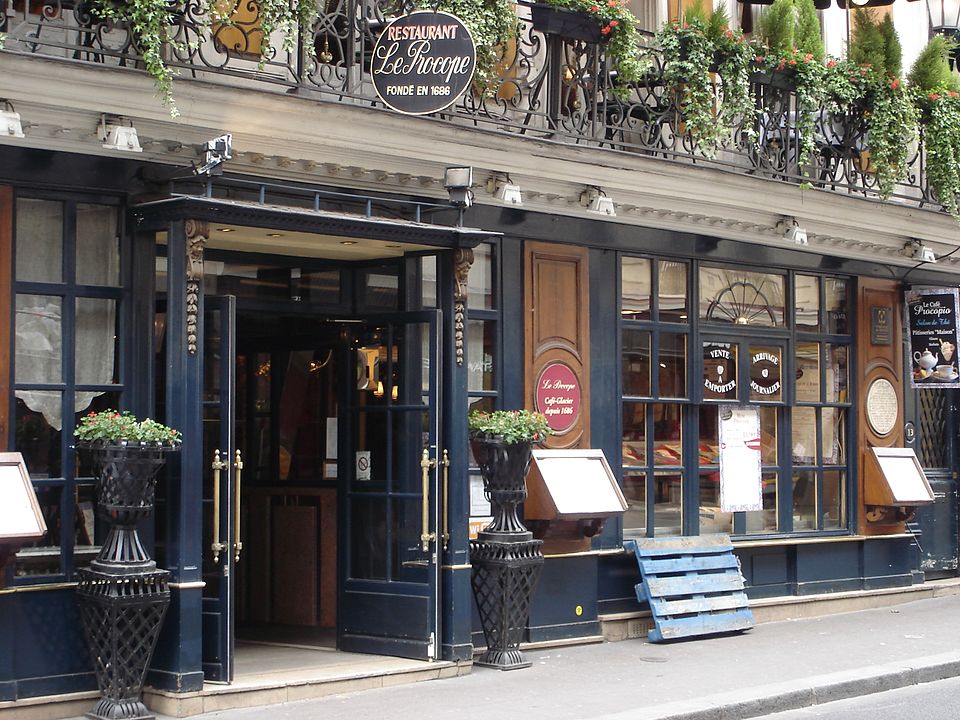Le Procope: French Revolution’s Secret Meeting Spot
Le Procope, founded in 1686, is one of Paris’s most famous cafés. It closed its doors in 1890 and transformed into a bouillon Chartier, but then reopened in 1957 under its original name as a restaurant.
Today, Café Procope is alive and kicking and sits at 13 rue de l’Ancienne-Comédie in the 6th arrondissement, accessible through the Cour du Commerce-Saint-André. It serves traditional French dishes such as Coq au Vin and Tête de Veau.
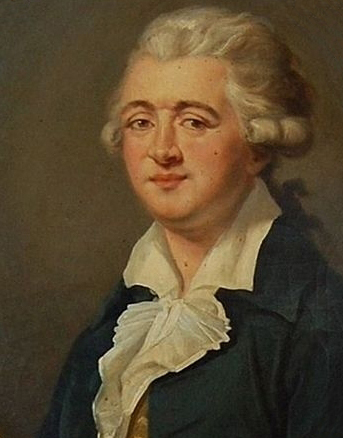
The Procope was established in 1686 by Francesco Procopio dei Coltelli, an Italian from Sicily, who initially Procopio worked at a café run by an Armenian named Pascal on Rue de Tournon.
By 1686, he opened his own café which was luxuriously decorated, and quickly gained popularity. Located near the Comédie-Française, Café Procope drew in actors and theater-goers. This strategic location helped it thrive as a hub for Paris’ cultural and intellectual scene.
By 1700, Procopio even secured a unique water concession from the city of Paris for his establishment, ensuring a steady supply directly from the Saint-Germain fountain. The café soon became a favored meeting place for the city’s thinkers, rivaling other well-known places like Café de la Régence.
The 18th century marked Café Procope as a center for artists and philosophers. Figures like Voltaire, Diderot, and d’Alembert were regulars.
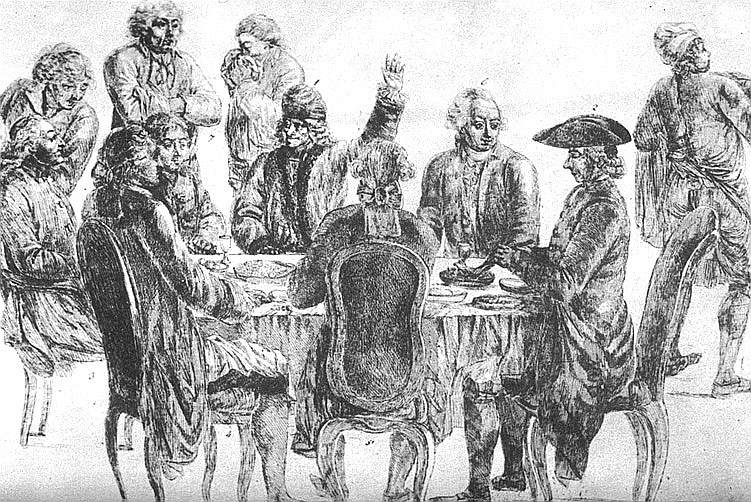
The café’s reputation was so great that a plaque inside claims Benjamin Franklin discussed plans for the 1778 treaty between France and the United States there, possibly even drafting early ideas for the U.S. Constitution.
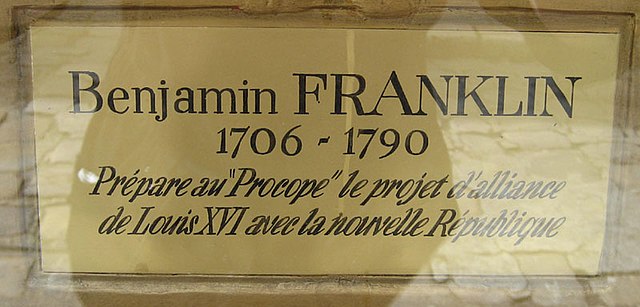
During the French Revolution, ownership changed, and a man named Zoppi took over. Under him, the café became a center for revolutionary activities. The Cordeliers Club, with members like Danton and Marat, frequently met there. Robespierre was also known to visit, and a portrait of him was displayed.
The café was pivotal in revolutionary symbolism. The Phrygian cap, a symbol of liberty, was shown here for the first time, and calls for the attack on the Tuileries Palace were made from within its walls. Even Voltaire’s table was used ceremonially when his remains were moved in 1794.
In the 19th century, Café Procope continued its literary tradition. After Zoppi, Jean-Baptiste-Godefroy-Modeste Heu took over, restoring the café’s original name. It once again became a gathering spot for writers and intellectuals like Musset, George Sand, and Théophile Gautier. Critiques praised Heu’s skills as a café operator, namely due to the introduction of ice cream, pastries, and confections.
Despite its fame, financial struggles led to its closure in 1890. Writer Anatole France noted that the café had “glory but no money.” The building housed various businesses until 1957 when it was renovated and reopened as a restaurant bearing the original name.
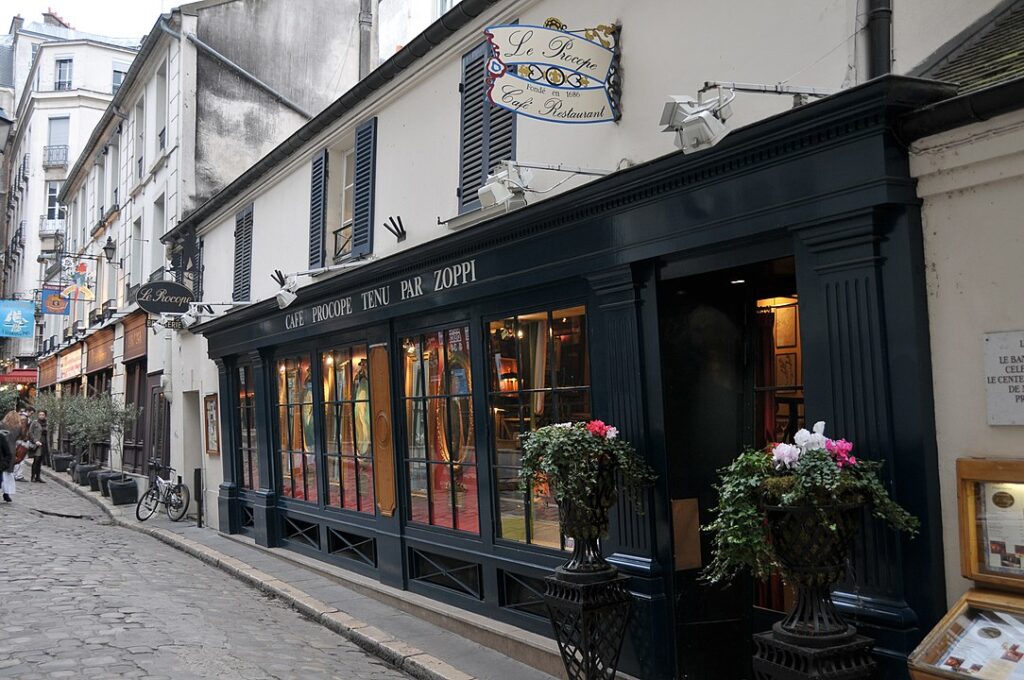
In the 20th century, Café Procope’s space was used for different purposes, including as a Bouillon Chartier. It was renovated and reopened in 1957 as a restaurant under its historic name. Its historic feel was preserved with 18th-century style decor: red walls, crystal chandeliers, and portraits of famous patrons.
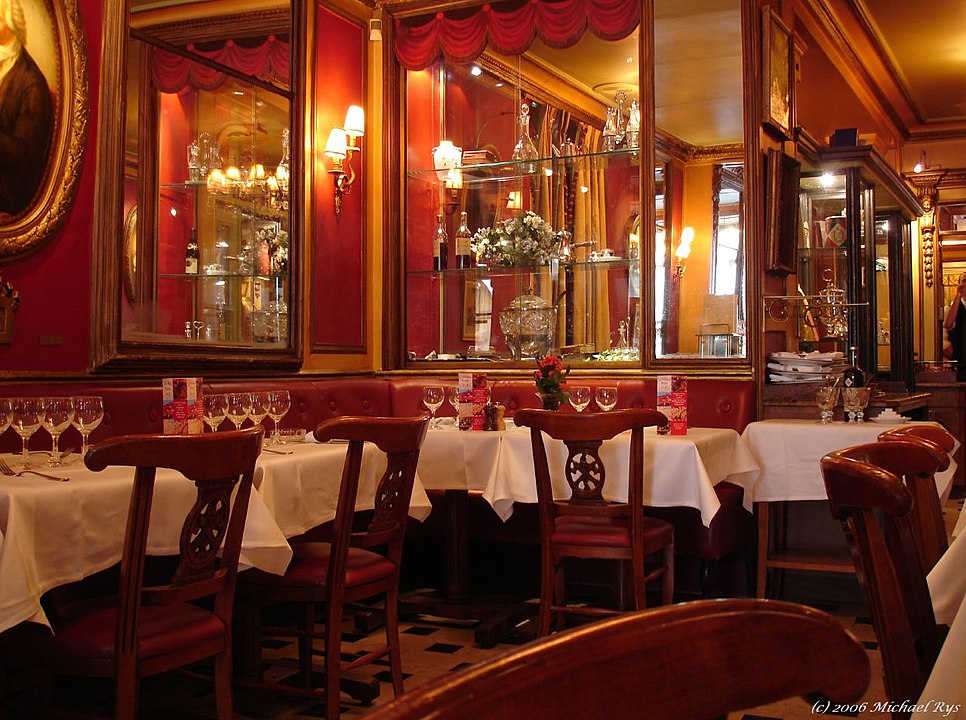
The restrooms have signs labeled “Citoyens” and “Citoyennes,” with a quote by Voltaire displayed in the men’s area. The walls hold documents related to the French Revolution, and a hat said to belong to Napoleon is showcased at the entrance.
The building’s facade, with iron balconies and its roof, is registered as a historical monument.
Since 1954, the Procope has hosted the ceremony for the Humour Noir prize, and since 2005, the Jean-Zay prize. In 2011, its owners launched the Procope des Lumières prize, awarded for political or philosophical essays written in French that promote new, critical ideas. The winner receives a cash prize, a dining table reserved at Café Procope for a year, and a bottle of vintage champagne.
In 2016, ownership passed to the Bertrand Group.
***
Source: Adapted from Wikipedia (CC)

